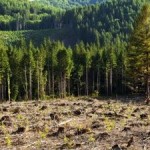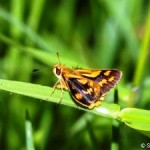“Although this spring was rather cold, warmer springs in general are leading to earlier phenological events, such as earlier flowering of plants and emergence of insects. This can cause problems if there is not synchrony between plants and their pollinators, or insects and their predators – for example birds.”
“The loss of coastal habitats will also lead to a decline in specialist invertebrate species, such as the Lagoon sea slug (Tenellia adspersa).”
The full report was compiled by the Living With Environmental Change Partnership (LWEC) and partners include Defra, the Natural Environment Research Council (NERC), the Environment Agency and Natural England.
Announcing its publication on May 9, Natural Environment Minister Richard Benyon said, “It’s essential that we improve our understanding of how the natural environment is changing, as this affects the action we need to take to conserve biodiversity. New policies are based on scientific evidence, which is why research like this is so important.”
Check the following link to read/download the Full Report:
http://www.lwec.org.uk/resources/report-cards/biodiversity
Source: UEA.















